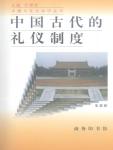Chapter 1 Opening Words "Etiquette"
Our country is known as "the country of ancient civilization" and "the state of etiquette".Since ancient times, the Chinese nation has not only created an extremely brilliant and splendid material civilization that has attracted the attention of the world, but also created a world-renowned and colorful spiritual civilization.The creator of these civilizations, the Chinese nation, is also famous for its industrious, intelligent, studious and enterprising image, as well as its polite, harmonious and humble demeanor.In the long course of history, through various channels of communication, the civilization created by the Chinese nation has also been introduced to many countries and regions, and more people have learned and learned from it, and integrated it into their own culture.So far, traces of traditional Chinese culture can still be seen in the social life of some countries and regions.It can be said that today, Chinese civilization has become a precious heritage in the treasure house of human civilization.Of course, because material civilization is closely related to the development and progress of society and people's material life, and it is tangible and visible, it is more recognized by people.But spiritual civilization also plays an extremely important role in the development and progress of society, which cannot be ignored.If there is no orderly social order and a peaceful and stable social environment, material civilization alone will not do.History tells us that material civilization and spiritual civilization are inseparable and mutually reinforcing. It is the progress of spiritual civilization that provides the necessary environment and conditions for the development of material civilization.The etiquette in ancient my country, as an important part of Chinese civilization, embodies the spiritual civilization and style of the Chinese nation. The content of etiquette is also an important symbol of civilization and morality in ancient society.
"Li" and "Yi" are generally regarded as etiquette rituals today, that is, in social interactions and when dealing with people, one should treat each other with sincerity and courtesy.In daily life, you must be polite; when you meet a teacher, salute; when visiting relatives and friends, bring gifts;Many etiquettes can be seen everywhere in today's social life. This is certainly a manifestation of modern civilization. However, if we trace the origin of modern etiquette, it is gradually evolved and evolved from ancient etiquette through a long history of development. of.Therefore, there is a direct relationship between ancient and modern etiquette.
Today, people are more accustomed to combining "ritual" and "yi" as a concept.In fact, in ancient Chinese society, "ritual" and "yi" appeared as two different concepts. "Li" is actually abstract, it is composed of a series of systems and regulations, it not only serves as the ethical and moral norms that people should abide by when interacting with each other, but also serves as a concept and consciousness of society, constraining people speech and behavior.And "Yi" is the specific form of "Li", which is strictly based on and follows the regulations and content of "Li", forming a set of systematic and complete procedures and forms.It can be seen from this that "ritual" and "yi" are interrelated, "ritual" is the core and standard of "ritual", and "yi" concretizes and visualizes "ritual".It can be said that there is no "ritual" without "ritual", and there is no "ritual" without "ritual".In ancient China, "etiquette" involved a very wide range, permeating all aspects of ancient social life: from society to family, from court to folk, to people's speech, behavior, clothing, food, housing, transportation, dealing with people, etc. in daily life. Interpersonal relationships, etc., all follow the rules of "etiquette".The ancients regarded "etiquette" as a major event. One of the important reasons is that the restraint and normative role of "etiquette" can make society more orderly, thereby promoting social stability and establishing harmonious interpersonal relationships.Therefore, the ancients regarded it as a moral standard and code of conduct, and passed it down from generation to generation to abide by it together.At the same time, rulers also use "etiquette" to maintain their privileges and status, so "etiquette" also includes the concept of rank, and forms a system on this basis.Under the vigorous admiration and publicity of the rulers of all dynasties, people from all walks of life in the whole society are actually bound by the etiquette system forcibly, and are restricted by it all the time and everywhere.However, this also promoted the socialization of the etiquette system, promoted the secularization of etiquette, made social life closely related to it, and became an indispensable content in social life.As a result, the atmosphere of respecting, abiding, emphasizing, and saluting in ancient Chinese society gradually formed. Therefore, "etiquette" has also become a fashion in ancient Chinese society.
Although the etiquette system formed in ancient China has negative elements and serves the interests of the rulers more, etiquette is not without positive aspects, such as respecting the elderly, respecting teachers, serving the motherland, and being at home, modest and prudent. Since ancient times, it has been an important embodiment of etiquette, the essence of etiquette, and a virtue praised by people.Therefore, the ancient Chinese etiquette and its system can neither be totally negated nor inherited.The ancients actually did just that.Since the birth of etiquette, it has been constantly developing and evolving. With the development of history and the progress of society, etiquette and its systems have been constantly learning from the old and absorbing the new. Some content that is not suitable for the times has been modified or discarded, and replaced with new concepts. and practices.Because of this, etiquette, as a moral code of conduct and form in a specific historical period, cannot remain unchanged in the development of history. It embodies the traditional virtues of the Chinese nation.Due to the continuous development of etiquette, after thousands of years of history, the content of etiquette has become very large and complex.Here, we can only choose some introductions from the vast sea of etiquette, so that readers can have a preliminary understanding of it.

